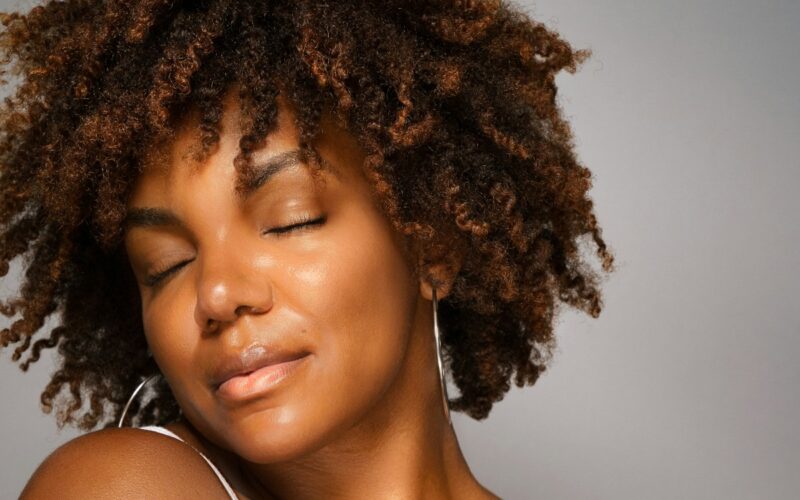Aging is natural, but knowing the right secrets to youthful radiance with anti-aging serums, especially for black skin tone, can slow the process.
Aging is an aspect of life, and the unique needs of melanin-rich skin are sometimes overlooked when discussing skincare in Black and Brown communities. “Black don’t crack” may be the beauty slogan we were raised with, but it doesn’t imply our skin won’t need anti-aging serums.
It’s a frequent misperception that taking anti-aging treatments equates to pursuing youth or feeling embarrassed about becoming older. False!! Including an anti-aging serum in your skincare regimen doesn’t imply that you dislike your appearance; rather, it shows that you are concerned about the health of your skin as it ages.
Consider it similar to eating healthily or exercising. Anti-aging serums are not magic; they are a form of maintenance, supported by scientific evidence. Clinical studies have demonstrated the ability of ingredients such as retinoids, hyaluronic acid, peptides, and vitamin C to enhance skin tone, texture, and elasticity.
When to Start Using Anti-Aging Serum?
There is no ideal age. As a preventative measure, some people start in their late 20s or early 30s; others start later when changes are more obvious.
The most important thing is to pay attention to your skin. It may be time to upgrade your skincare routine if it seems less elastic, harsher, or drier than normal. The secret is consistency. Anti-aging serums can promote the long-term health and vibrancy of your skin, but they won’t give you an instant glow.
3 Secret Ingredients to look for in Anti-Aging Serums for Black Skin
Serums provide a high concentration of active chemicals in a lightweight solution, in contrast to thick creams. They are ideal for addressing the early signs of aging. What to look for in a serum is as follows:
1.Sun protection
Although skin with more melanin has better natural protection against UV rays, it is also more likely to become dry, irritated, and hyperpigmented. Therefore, even while we might not wrinkle as quickly, we nevertheless experience aging, although with distinct symptoms.
2. Hyperpigmentation
To level out dark spots, use brightening chemicals like niacinamide or vitamin C. Opt for gentle formulations that steer clear of harsh ingredients or scents that could aggravate pigmentation.
3. Moisturizing
Hydrating components, such as hyaluronic acid, help make skin smooth and plump. Retinoids or peptides to increase the flexibility and structure of the skin. According to Dr. Dendy Engelman, cosmetic dermatologist at Shafer Clinic NYC, “Retinol stimulates collagen and elastin production, boosts cell turnover, and generally makes cells act younger and healthier.”
Why Anti-Aging Serums Matter for Black Skin
We’re all in favor of aging organically. Gentle wrinkles, laugh lines, and grin folds characterize a life well-lived.
However, it’s also true that many of us desire to keep our skin feeling firm, moisturized, smooth, and glowing. Anti-aging serums, or pro-aging serums as some now refer to them, can help with that. Some other benefits of anti-aging serum for black skin include drooping, uneven tone, fine wrinkles, and dullness.
Conclusion
As Dr. Jody Comstock, a board-certified dermatologist and founder of Skin Spectrum, puts it, “Regular use of anti-aging serums will make a significant difference in the skin immediately and also as you age.”
In addition to providing hydration and UV protection, they also promote the formation of collagen, a protein that typically decreases in our mid-20s. If your serum works well with sunscreen, that’s a bonus because daily SPF is a must, regardless of skin tone. Check our article on celebrity skincare secrets for more information.
What ingredients in your serums are a game changer for anti-aging? Share with us how it improved your dark skin in the comments.
IMAGE CREDITS: Matthew Jackson on Unsplash











